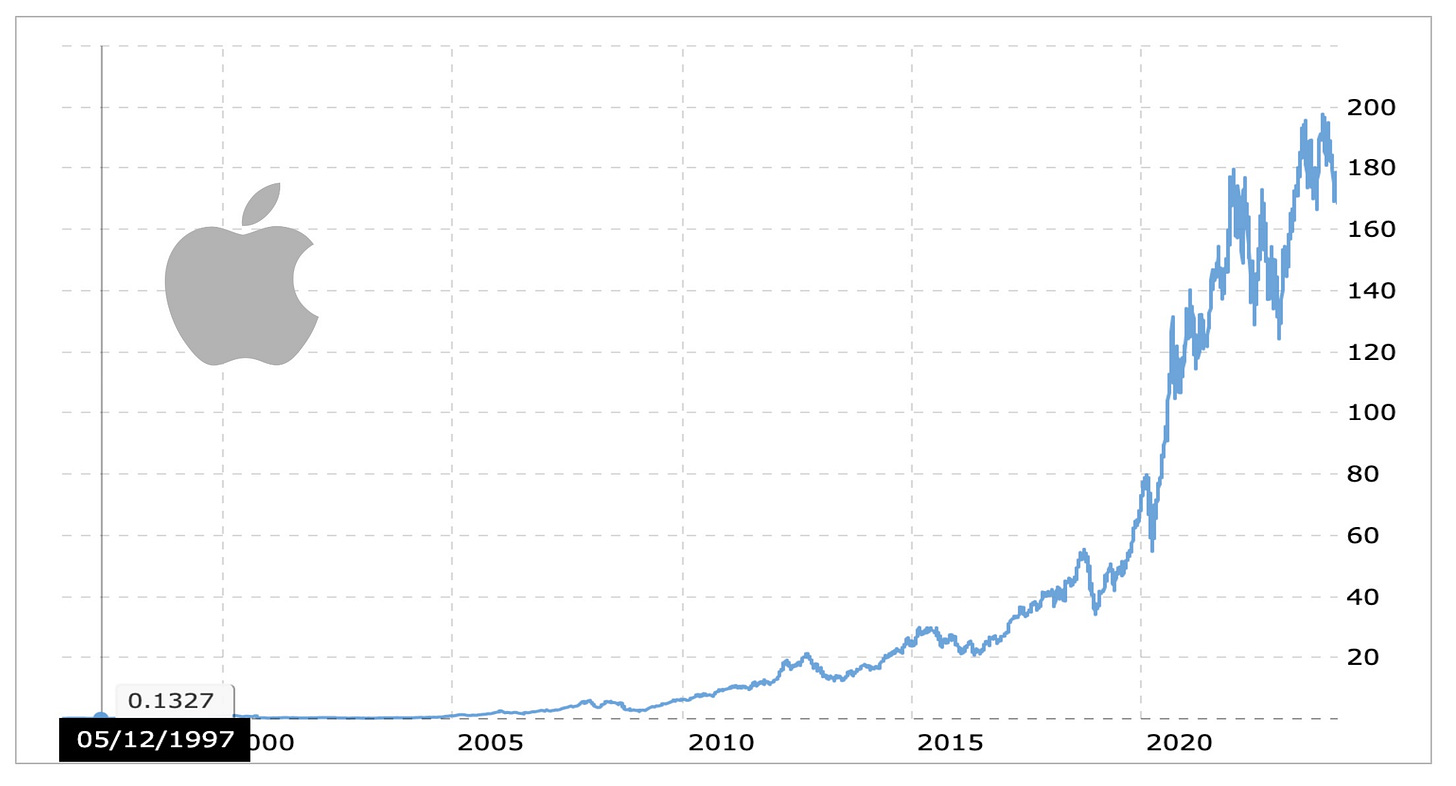Those who wander
Navigating today's hiring world with a non-linear career
My career hasn’t always followed a straight line.
I’ve worked as a software engineer, product manager and partnerships lead in Silicon Valley, but I’ve also spent years as a social entrepreneur and sustainable development consultant in Kenya, India, Brazil and the U.S.
I’ve developed AI assistants for NASA and launched new developer platforms for Facebook and Automattic, but also worked on latrine cleaning services and soy protein sales in the urban slums of Nairobi and Hyderabad.
I’ve experienced more than one restart moment in my career, either because I decided to jump into something new or life just came along and called “time out”.
And these days, I am increasingly running into people with similar experiences, navigating “non-linear” careers like me, or starting over to tackle something new.
Also like me, sometimes that’s been voluntary, sometimes a response to circumstances.
For everyone I’ve met, I have heard stories about the challenges in navigating a non-linear career, but also about a lot of joy as well.
For example, if I had just stayed an engineer at Apple all those years, my career story would be a lot simpler to tell to recruiters. I’d probably be richer, too.
But my life sure would have been a lot less interesting, and my potential for impact, a lot smaller. I would have missed so many incredible experiences and people.
I have zero regrets.
Still, today’s hiring environment represents additional challenges for people with non-linear careers. I’ve found this to be true for me personally, but also for others I have worked with as an advisor and coach.
For every new role, companies are awash in applications and many are using some form of pattern matching to manage the volume. If your career didn’t follow a straight line, you may find fitting the prescribed patterns to be a difficult task.
Even just to get a foot in the door, you need to be extra considerate about the opportunities you pursue and how you go after them.
If you want to maximize your probability of success, here are a few strategies I have found to be helpful.
Look for opportunities where being non-linear gives you super powers
Customize a story of your career as a narrative to match the opportunity
Cultivate a network of people who value the intersections in your career
Places where non-linear is a super power
You want to find opportunities where the diversity of your career is considered a strength, and not a liability. Below are a few broad areas where I have personally found that to be true.
Do you know of others? I’d love to hear about them in the comments.
1) Bridging multiple domains
Experience working in different domains can enable you to be a very effective translator, whether that’s between sectors like healthcare and AI, or between different roles, like engineering and sales.
Even if you haven’t worked in one of those domains, having already been an “expert turned newbie” you are better positioned to translate for a new domain.
In other words, you have experienced not know everything, and you know any one domain is unlikely to have all the answers. That’s a strength.
“Modern work demands knowledge transfer: the ability to apply knowledge to new situations and different domains. Our most fundamental thought processes have changed to accommodate increasing complexity and the need to derive new patterns rather than rely only on familiar ones. - David Epstein: Range
2) Turnarounds
Leading turnarounds is another area where people who have more breadth of experience can shine, particularly when you’re talking about turnarounds that became necessary due to external factors*, such as changing market conditions.
Your greater breadth means you have more exposure to other approaches, and the ability to understand and learn from other domains can greatly increase your options and your probability of success.
You also probably have seen a wider range of failures and success, are unlikely just to insist to keep doing what already failed, like the proverbial hammer in search of a nail.
[* Stakeholders can often conflate internal and external factors. If you’re considering tackling a turnaround, check out my last post on the subject]
3) Entrepreneurship and creators
Starting something new can greatly benefit from a broader experience base. Research has demonstrated that exposure to diverse experiences can enhance individuals' creativity and innovation capabilities.
Entrepreneurs who have worked across multiple domains or industries may bring fresh perspectives and unconventional solutions to business challenges, which can be compelling to investors looking for novel and disruptive ideas.
This is especially true if you’re working to intersect domains where you have experience, say applying expertise or familiar technology to another area you are intimately aware of.
When you step into an intersection of fields, disciplines, or cultures, you can combine existing concepts into a large number of extraordinary ideas. - Frans Johansson, The Medici Effect
4) Coaching
Coaching benefits from your accumulated expertise and insights to guide others along their career journeys, especially for people taking a non-linear path.
By drawing on your own experiences and lessons learned, and providing mentorship, you not only contribute to the development of individuals but also reinforce your own understanding and mastery of the different subjects or industries.
A growing number of people are transitioning to new kinds of work, and whether voluntary or involuntary, they can greatly benefit from the experience of someone who has navigated their own transitions.
Customizing a story of your career
As mentioned previously, recruiters and hiring managers are increasingly using pattern matching to manage the sheer volume of applicants.
To increase your chance of being interviewed and getting an offer, you’ll want to practice and highlight a narrative for your career that succinctly demonstrates how you are a good match for the opportunity.
To do this, you need to first step back and brainstorm several key elements.
A passion or purpose that drove your career, and how it ties into the organization’s reason for being
Problems you solved that are highly relevant to the opportunity
Skills or expertise that you used that were core to solving those problems
Impact that you created, that the organization would value
How the intersection of your domains and disciplines make you powerfully suited to tackle the opportunity
Then use those elements to construct a narrative of your career, customized for several important conversations and formats:
For asking someone in your network for an introduction, referral or reference
For outreach to a recruiter or hiring manager
To customize your cover letter and resume
For informational interviews or first conversations with recruiters
Furthermore, if you make it far enough, you’ll want to use these elements for your interview preparation. Use them to customize a handful of case studies you can draw on to answer questions during your interviews.
Ultimately, we are in a “buyers market” for jobs: you can’t rely on hirers to connect the dots between the opportunity and your career. As much as possible you need to do it for them, because you’re the one that can look back and do so.
You can’t connect the dots looking forward; you can only connect them looking backward. - Steve Jobs
Cultivating a network of people who value your intersections
This may be the most important step you can take, though also one that takes the most time.
The goal is to activate a network of people who can send you opportunities and refer you to roles where you will be valued. In particular, you want a group of people that:
Understand the value of non-linear careers, because they have one themselves or because they have worked with people who have
Can see your non-linear career as a differentiator, and recognize that the intersections of different aspects of your career give you a super power
Are steeped enough in a domain that they can help you customize your career narrative and your offer to companies to work in that domain
As an example, I ended up working at Facebook in large part due to a referral from a fellow entrepreneur that could recognize the value my non-linear career offered and who was well positioned to tell my story to people within Facebook that mattered. Likewise, I was fortunate to be hired at Automattic by a leader experienced enough to see my potential (with her own non-linear career), but who was also connected to people in my network who could verify that value.
In contrast, here are a couple examples of feedback I’ve gotten from people that did not meet any of the above criteria:
“You’re clearly experienced with product, but we don’t know what to make of everything else you have done.”
“You probably like working on different things because you know you’re not good enough at any of them.”
If you don’t want to encounter the above, cultivate a network of people who understand that not all value comes from straight lines.
Not all those who wander are lost
I’ll close with this poem from J.R.R. Tolkien’s Lord of the Rings, a riddle which was given to Frodo by Gandalf to identify the real “Strider”, a ranger who had been wandering Middle-earth for years.
All that is gold does not glitter,
Not all those who wander are lost;
The old that is strong does not wither,
Deep roots are not reached by the frost.
From the ashes a fire shall be woken,
A light from the shadows shall spring;
Renewed shall be blade that was broken,
The crownless again shall be king.
Even Aragorn, Hero of the Fellowship and future king of Gondor, needed help to be recognized and for his wandering to be valued.
Like Aragorn, show the world you may have wandered, but you are not lost.




